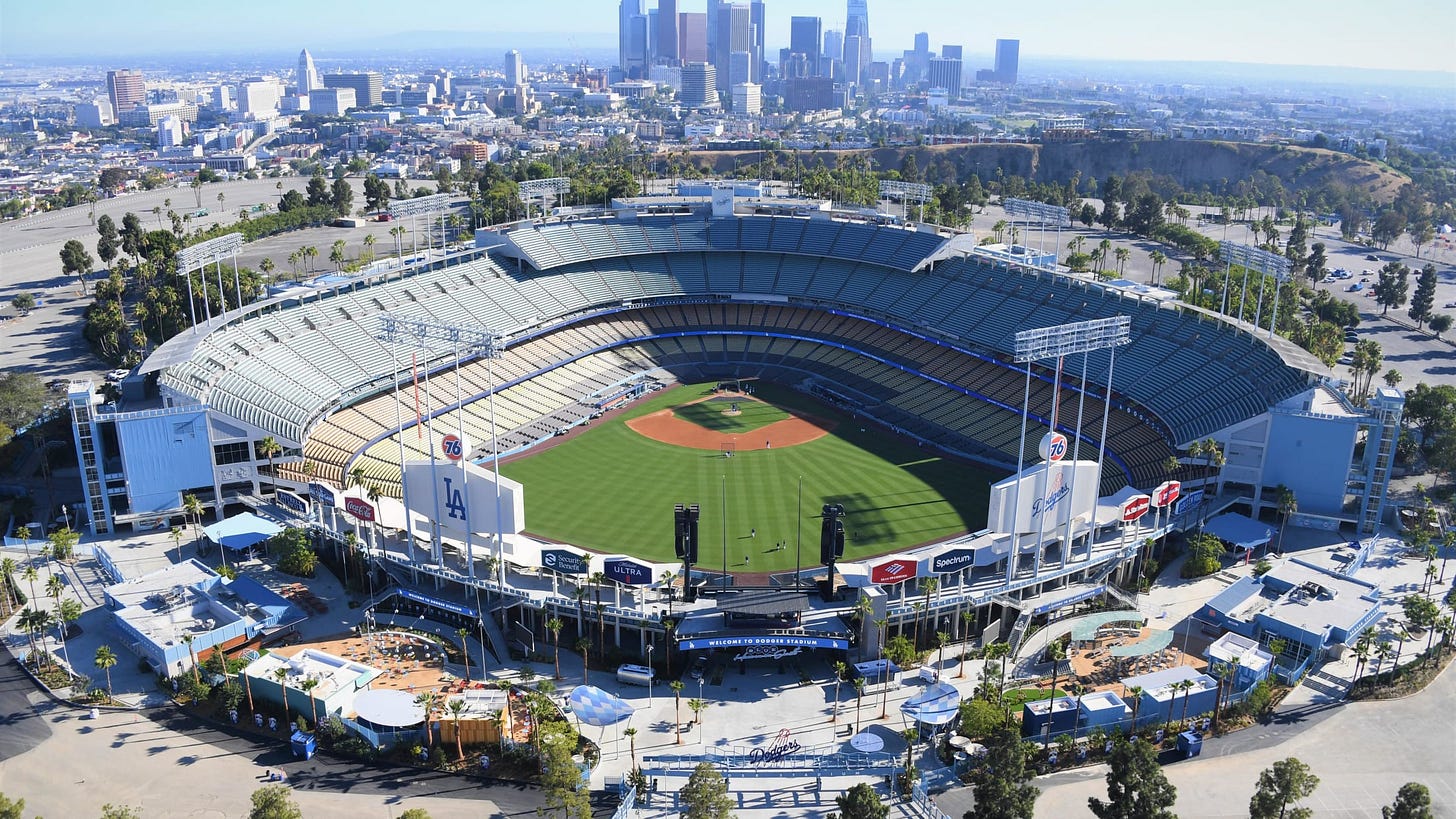Beauty, Betrayal, and the Human Condition
"Those who cannot remember the past are condemned to repeat it." - George Santayana
Being a Dodger fan means carrying a contradiction. Dodger Stadium is one of the most beautiful places I’ve ever been. It is a perfect mid-century ballpark, tucked into the hills, open to the sky, a cathedral of baseball that feels timeless. I love being there. It feels wonderful. And yet, it has a stain that never washes off.
The Dodgers didn’t just move…
Keep reading with a 7-day free trial
Subscribe to Baseball Buddha to keep reading this post and get 7 days of free access to the full post archives.



